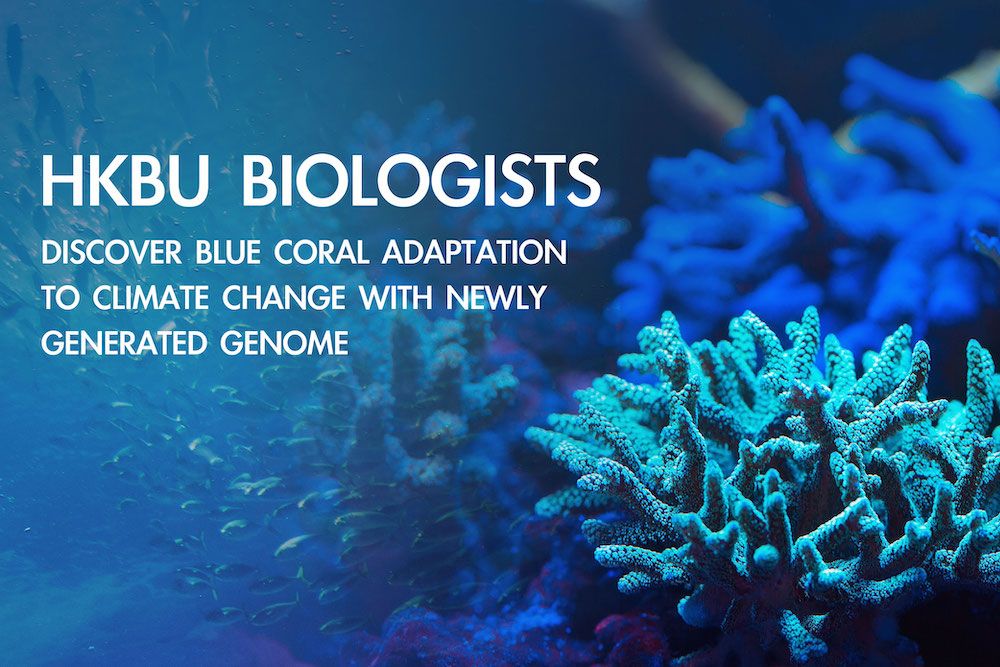



Coral reefs are incredibly diverse and valuable ecosystems that are facing significant threats from climate change and human activities. In order to better understand how some coral species are able to handle environmental stress, Dr Ip Chi Ho, Research Assistant Professor of the Department of Biology of HKBU and his research team have been using genomics to study their genes. However, due to the lack of reference genomes for many coral species, studying them is difficult.
To address this issue, the blue coral Heliopora is being studied because it's the only reef-building octocoral genus and is able to grow well in temperatures that are close to the bleaching threshold of other coral species. Recently, Heliopora has been expanded in new locations, including both local and high-latitude areas. However, the researchers still don't know much about how this coral is able to tolerate high temperatures.
To fill this gap in knowledge, a team of researchers generated a draft genome of blue coral Heliopora coerulea with an assembled size of 429.9 Mb, scaffold N50 of 1.42 Mb and BUSCO completeness of 94.9%. The genome contains 239.1 Mb repetitive sequences, 27,108 protein coding genes, 6,225 lncRNAs, and 79 miRNAs. This reference genome provides a valuable resource for in-depth studies on the adaptive mechanisms of corals under climate change and the evolution of skeleton in cnidarian, which can help better understand how coral reefs can be preserved and protected.The research findings have been published in Nature.



